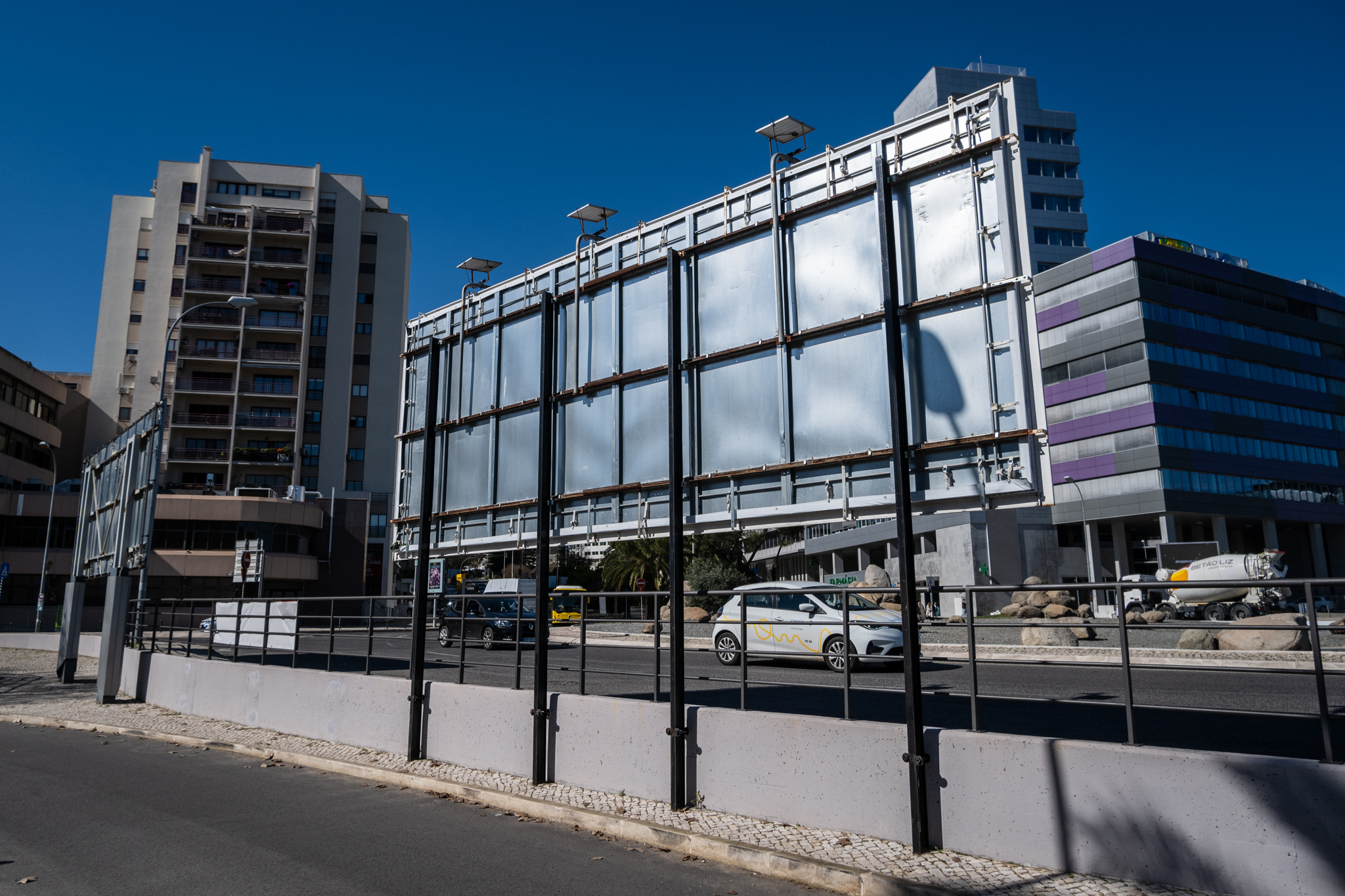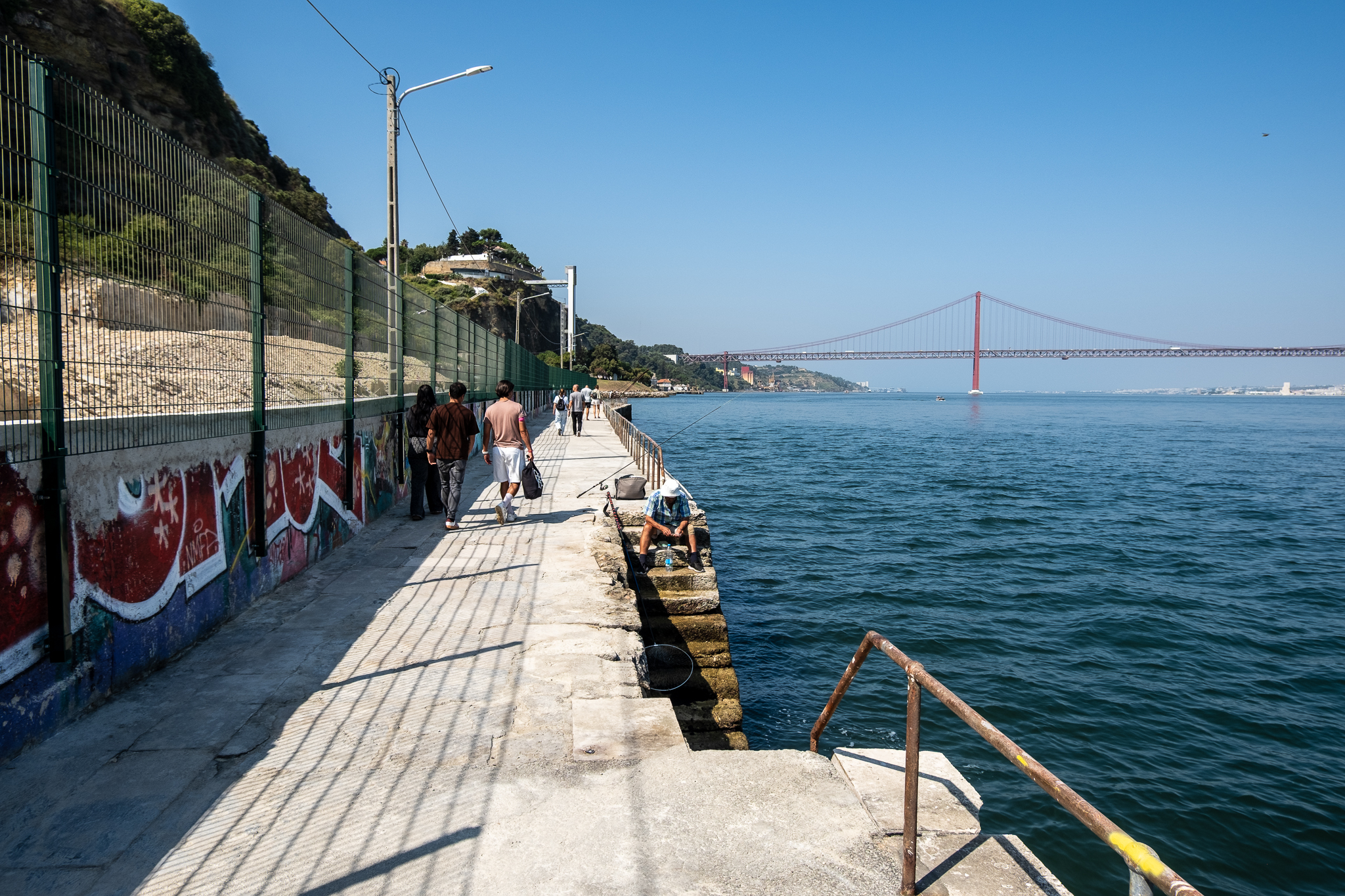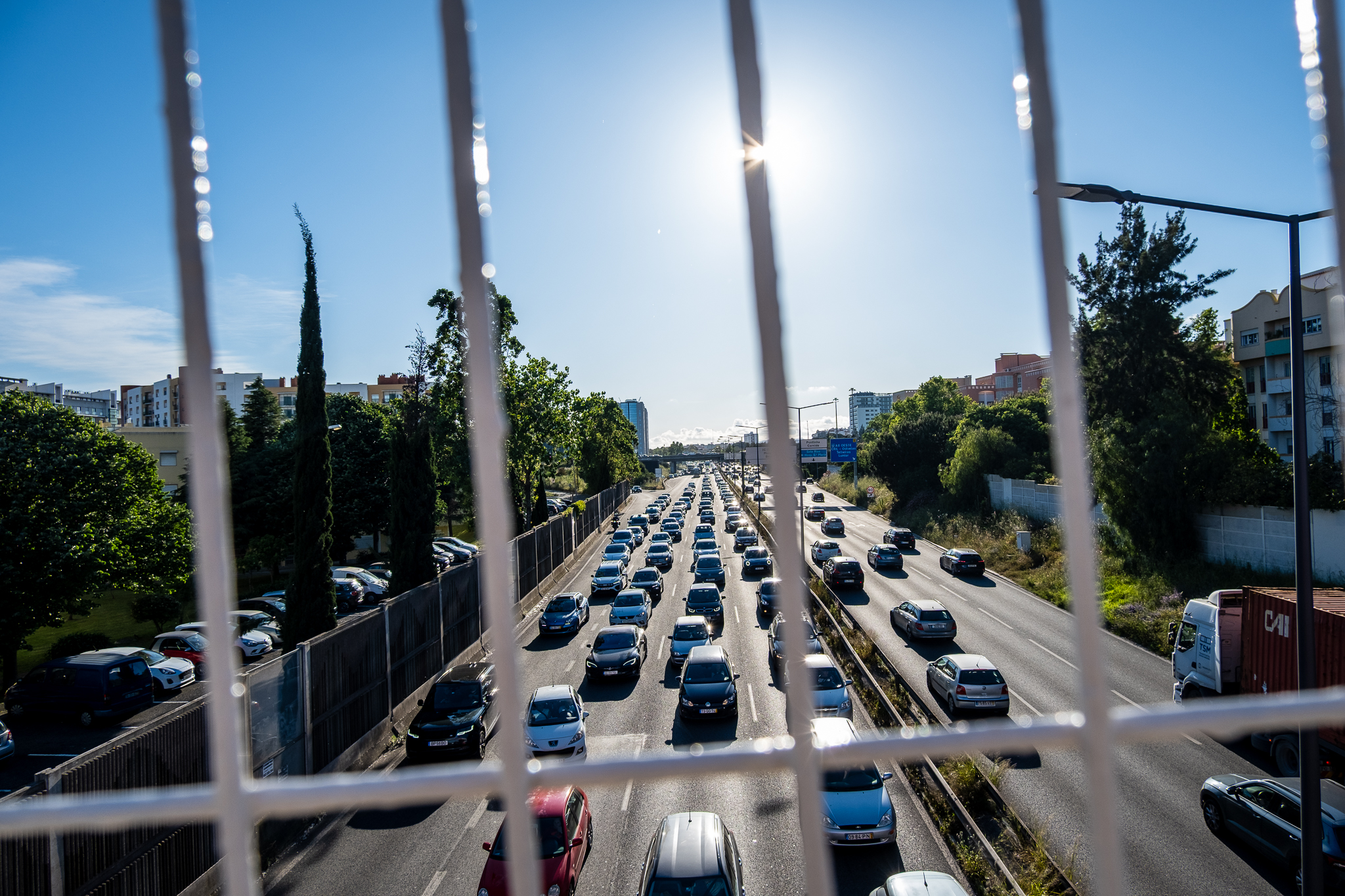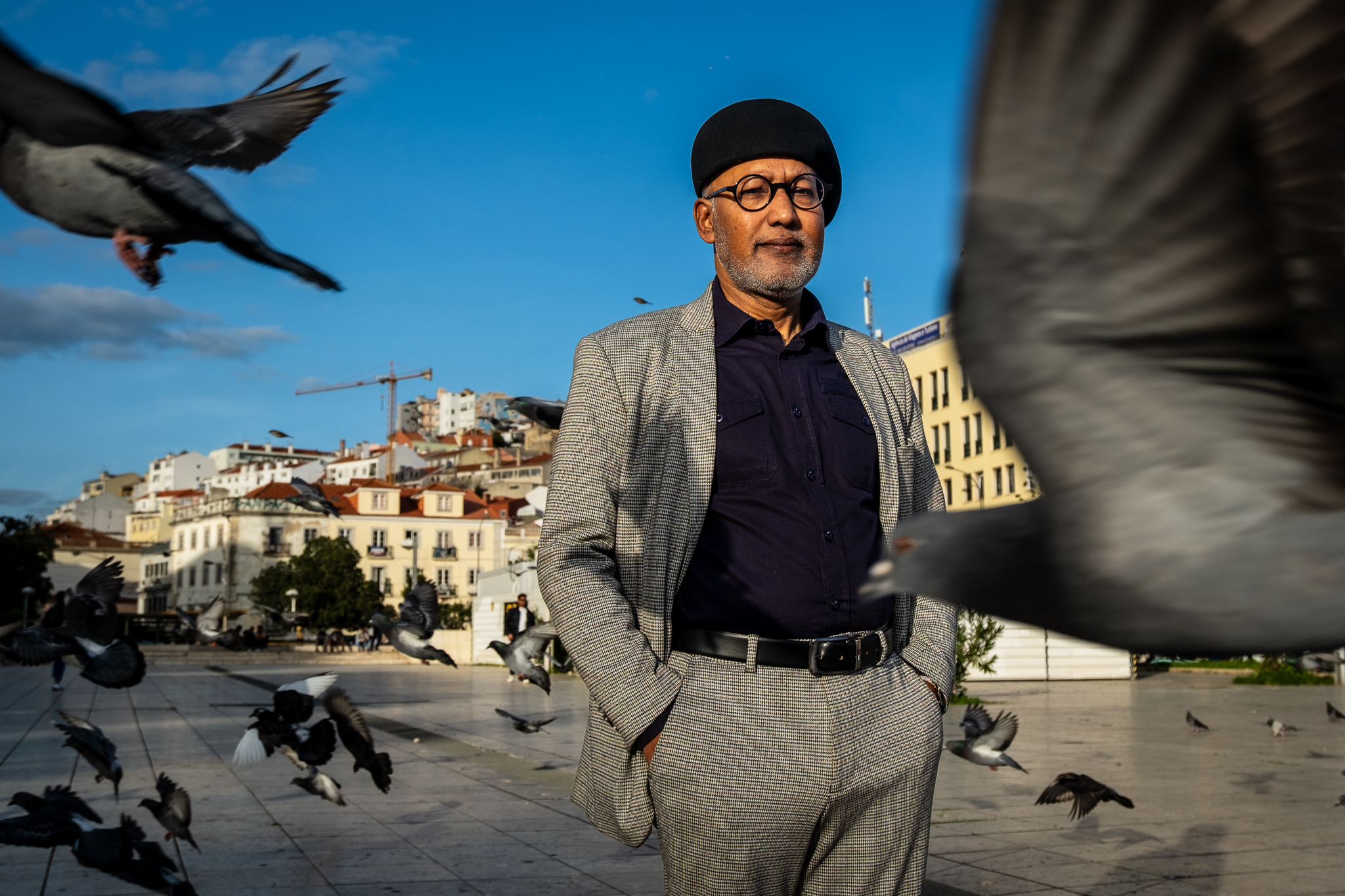The Municipality of Oeiras, led by Isaltino Morais, does not want political and electoral propaganda to be displayed anywhere and everywhere. At the end of the year, it put forward a regulation and now a proposal, seeking to define specific locations for these messages. The regulation was approved, but the proposal has been postponed after generating controversy among the only opposition councillor.

In 2022, the Mayor of Lisbon, Carlos Moedas, managed to remove the large political posters that adorned the Marquês de Pombal traffic circle for decades. Despite some initial friction, the measure ended up resisting and today no one will want that square to look the way it did before. In Oeiras, his counterpart, Isaltino Morais, wants to implement something similarHe went further. At the end of last year, it put forward a regulation and now a proposal, in an attempt to regulate the display of political and electoral propaganda not in one square but throughout the municipality.
If the regulation - entitled Regulation of Administrative Permissions, Fees and Other Revenues (RPATOR) - establishes the theoretical and general bases of the intended regulation (based on the legislation in force), the proposal would put this regulation into practice, defining concrete locations in the municipality for the messages of political parties and election campaigns. The proposal was presented to the councillors, including the only opposition councillor, Carla Castelo, at the beginning of the year, who raised doubts about its legality. The discussion of the text at a town hall meeting has since been postponed. On the table was a restriction on "display and inscription of political and electoral propaganda messages" in some parts of the municipality, namely:
- at motorway entrances and exits;
- "when it could harm road traffic";
- at traffic circles, squares, gardens and in front of the Marginal/Passeio Marítimo, "given the great impact on the natural heritage of the municipality and the country";
- on the main roads and in recently redeveloped areas, "in the event of non-compliance with any of the applicable legal and regulatory requirements";
- and historic centers.
In the rest of the municipality, "it seems to us that the display and inscription of political and electoral propaganda messages should be allowed"in line with freedom of political expression.
The proposal was presented for discussion at the town hall meeting on January 24, but was eventually withdrawn by Isaltino Morais. "I'm withdrawing it because I simply haven't read it"said the Mayor of Oeiras at the time, quoted by the newspaper Expressorecognizing that this is a proposal "controversial". The text was eventually rescheduled for the following meetings, which took place on February 7 and 21, but were postponed again.
What the law says
Urban areas in Portugal are full of large posters, a scenario that has no parallel in other countries and which intensifies in the run-up to the elections. Lisbon, for example, had this problem in the Marquês de Pombal and continues to have it in places as central as Alameda D. Afonso Henriques or Avenida da República. This situation is criticized by many residents, but political parties benefit from an almost 'green light' to display their messages in public spaces. In fact, as the text of Isaltino's proposal points out, "the display of propaganda messages in public places or spaces, regardless of the medium used, is free in the sense that it does not depend on obtaining a municipal license", according to the Law 97/88.
But there are some exceptions to this law, which the Municipality of Oeiras has tried to clarify in the RPATOR, approved by the Municipal Assembly at the end of last year. These exceptions concern situations in which the display of political and electoral propaganda "may cause obstructions or visual intrusions or contribute to the degradation of the quality of the urban space", damaging, for example, the "panoramas of urban fronts" or viewpoints, the "visibility of store windows" or the "aesthetics of places or the landscape", among other cases.
In the proposal, the Oeiras City Council also states that, according to the same Law 97/88, although a municipal license is not required, it is up to the municipality to define and make available the spaces and public places for the display of propaganda, and in the case of electoral propaganda, this task must be done no later than 30 days before the start of the electoral campaign. The Municipality led by Isaltino Morais believes that it is "it is not necessary to make an exhaustive list of the places intended for the display and inscription of advertising messages"Instead, it identified the exceptions - that is, the places where it intended not to allow such displays (those listed at the beginning of the article).
Concerned opposition
The attempt to regulate political and electoral propaganda in the municipality of Oeiras did not please the only opposition councillor sitting on the municipal executive, Carla Castelo, elected by the Evolve Oeiraswhich brings together BE, Livre and Volt. On social media, she said "clearly illegal" the one proposed by "contain illegal rules on constitutional rights, freedoms and guarantees". "The most aberrant thing is that Isaltino maintains spaces dedicated to advertising throughout the municipality, including the Oeiras Valley, but, 50 years after April 25, he wants to ban political messages and electoral propaganda on traffic circles, squares, main roads and recently renovated areas."you can read on the coalition's social networks.
To LPP, Carla Castelo is surprised that this proposal is being "successively scheduled" and says that "those proposing it have yet to realize that it is manifestly contrary to the rights and freedoms enshrined in the Constitution of the Portuguese Republic". "We will vote against it and fight this attack on democracy at every turn. It's scandalous to want to ban political and electoral advertising, while allowing institutional and commercial advertising on traffic circles and main roads"the opposition councillor claims.
Is it important to regulate?
Carla says that the Evoluir Oeiras Coalition has already reported to the National Electoral Commission the "Municipal Regulation under which the Executive intends to approve the proposal" - i.e. RPATOR, where the issues of political and electoral propaganda are described in Section II.
To Carla Castelo, "of course it's important to regulate" the display of posters in the municipality's public spaces, starting with the "institutional and commercial advertising". But for the councillor elected by BE, Livre and Volt "it is unacceptable to arbitrarily prohibit, in violation of the law, political and electoral propaganda in places that are neither monuments nor places of cultural or landscape value". "It should be noted that the proposal doesn't even include a map with the points where it wants to be banned"he adds. "What's more, they allow institutional and commercial advertising in the same places where they want to ban political advertising. Political advertising blights the landscape and municipal and commercial advertising doesn't?"she adds.











